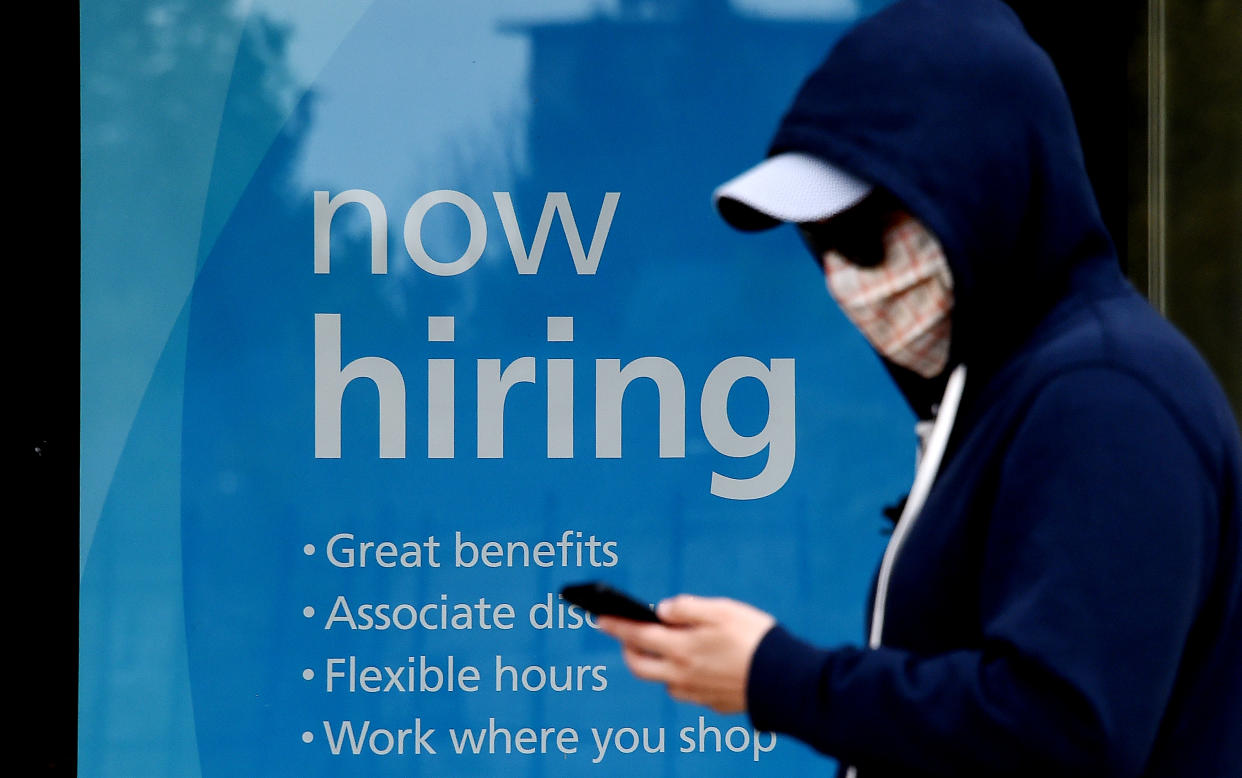States canceling extra unemployment benefits will cost local economies $12.3 billion
Half of the states planning to cancel the extra $300 in weekly unemployment benefits this month could cost their local economies $12.3 billion, according to a new study. The analysis comes a day after Maryland became the latest GOP-led state to opt out of the jobless program.
"There is little evidence that enhanced UI is holding back employment. In fact, ending it could cost local economies more than $12 billion," Chairman Don Beyer (D-VA) said in a statement on Wednesday following the release of the analysis by the U.S. Congress Joint Economic Committee (JEC). "If states proceed with their plans to end these critical programs, they will be ripping the rug out from under millions of Americans and further hindering our economic recovery."
The analysis uses a multiplier effect that shows every $1 in unemployment benefits generates $1.61 in local spending based on estimates by the Center on Budget and Policy Priorities.
The cost to local economies is likely higher when the Pandemic Unemployment Assistance (PUA) and Pandemic Emergency Unemployment Compensation (PEUC) programs are factored in. PUA provides benefits to workers who don't usually qualify for unemployment insurance, while PEUC provides additional weeks of benefits.
Twenty of the 25 states are opting out of PUA and PEUC, too, while Alaska, Arizona, Florida, Ohio, and West Virginia are only pulling out of the extra $300 weekly supplement.
Maryland is the latest Republican-led state to opt out of federal unemployment programs early, increasing the total number of states to 25 that will leave 4.5 million workers with little to no benefits next month.
"While these federal programs provided important temporary relief, vaccines and jobs are now in good supply,” Governor Hogan said in a statement on Tuesday. "And we have a critical problem where businesses across our state are trying to hire more people, but many are facing severe worker shortages."
Maryland's unemployment rate remained at 6.2% in April, down from its pandemic peak of 9% but higher than its pre-pandemic level of 3.5%. Starting July 3, around 300,00 workers in Maryland will lose at least $3,000 in additional unemployment benefits. The federal programs are set to expire on September 6 nationwide.
'If you lost your job last year there's nothing for you'

The move to cancel federal programs gained steam among Republican governors following April's disappointing jobs report. House Republicans including House Republican Leader Kevin McCarthy (R-CA) urged all GOP governors to opt out of the federal programs in a letter earlier in May.
Massachusetts and Vermont are the only states with GOP governors that have not yet canceled the federal programs.
The workers in those 25 states stand to collectively lose $25.2 billion in benefits, averaging out to potentially thousands of dollars per worker, according to an analysis by the Century Foundation.
"By pulling out these benefits in those states, there's basically nothing there for most people," Andrew Stettner, an unemployment insurance expert and senior fellow at the Century Foundation, told Yahoo Money. "The state benefits only last as much as 26 weeks. In some states it lasts even less. So if you lost your job last year, there's nothing for you from the state program."
Denitsa is a writer for Yahoo Finance and Cashay, a new personal finance website. Follow her on Twitter @denitsa_tsekova
Read more:
Many taxpayers are still waiting to get last year’s tax refund
Rich Americans avoid taxes even more than anyone realizes, analysis finds
Read more personal finance information, news, and tips on Cashay
Follow Yahoo Finance on Twitter, Facebook, Instagram, Flipboard, SmartNews, LinkedIn, YouTube, and Reddit.

